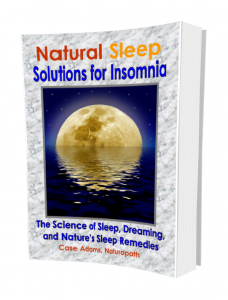Restful Sleep Makes You Eat More Healthy
A large study on sleep and eating shows that a good night’s sleep encourages our body to eat more healthy.
Yes, we know now that a good night’s makes us more alert, reactive and calm. And we knew that sleeping well consistently was better for the heart, brain, digestive system and many other parts of our physiology.
But who knew that how much we sleep would determine how healthy we ate?
Yet that is precisely what researchers have found in a large study on eating, BMI and sleep.
In this article
Large study associates restful sleep, body mass index and eating patterns
Researchers from the U.S. Department of Agriculture’ Human Nutrition Research Center of Aging at Tufts University, the Harvard Medical School and the University of Copenhagen studied 14,906 people Europeans as part of the Cohorts for Heart and Aging study.
The diets of the participants were analyzed together with their body mass index, the sleep duration and other body clock cycle variables. The volunteers were aged between 20 and 64 years old.
In general, the researchers found that those who had more restful sleep also had a lower body mass index and ate less in general. This is consistent with other studies.
But the study also found that those with better sleep also ate better. Those with better sleep ate fewer saturated fats. This was especially significant for younger adults. Those who slept better also ate fewer carbohydrates and ate more proteins. Among older women, however, longer sleep encouraged greater fat intake in general.
Is this eating trend why better sleep is healthier?
It very well may be the case. Overeating and eating the wrong foods is often done when alertness is reduced, leading to more anxiety and less control. The researchers confirmed the association:
“Our results indicate that longer habitual sleep duration is associated with lower BMI and age- and sex-specific favorable dietary behaviors. Differences in the relative intake of specific macronutrients associated with short sleep duration could, at least in part, explain previously reported associations between short sleep duration and chronic metabolic abnormalities.”
The one possibility that this may not cover is the situation where the sleep-deprived person is quite simply overworked, with less time to plan out meals. This can lead to a greater consumption of fast foods and/or convenient foods. Both of these are known for their lack of good nutrition in most cases.
Sleep and health associated elsewhere
The associations between better sleep and health have been made in other studies, as I have discussed in my book on sleep. But these associations aren’t the longer-you-sleep-the-healthier-you are kind of associations.
In fact, there is a sweet spot for restful sleep. It ranges from seven to eight hours per night. This is slightly weighted on the lower side, but with a great amount of individuality per person.
However, the positive benefits for sleep go down dramatically when the number of hours begins to exceed 8 hours. And benefits also go down with a lack – or too much of – REM-stage sleep.
Given that in our fast-paced society, few of us are even able to sleep those kind of luxurious hours, the study above highlights the improvements in eating habits between those who don’t sleep enough and those who do.
REFERENCES:
Dashti HS, Follis JL, Smith CE, Tanaka T, Cade BE, Gottlieb DJ, Hruby A, Jacques PF, Lamon-Fava S, Richardson K, Saxena R, Scheer FA, Kovanen L, Bartz TM, Perälä MM, Jonsson A, Frazier-Wood AC, Kalafati IP, Mikkilä V, Partonen T, Lemaitre RN, Lahti J, Hernandez DG, Toft U, Johnson WC, Kanoni S, Raitakari OT, Perola M, Psaty BM, Ferrucci L, Grarup N, Highland HM, Rallidis L, Kähönen M, Havulinna AS, Siscovick DS, Räikkönen K, Jørgensen T, Rotter JI, Deloukas P, Viikari JS, Mozaffarian D, Linneberg A, Seppälä I, Hansen T, Salomaa V, Gharib SA, Eriksson JG, Bandinelli S, Pedersen O, Rich SS, Dedoussis G, Lehtimäki T, Ordovás JM. Habitual sleep duration is associated with BMI and macronutrient intake and may be modified by CLOCK genetic variants. Am J Clin Nutr. 2015 Jan;101(1):135-43. doi: 10.3945/ajcn.114.095026.
Adams C. Natural Sleep Solutions for Insomnia: The Science of Sleep, Dreaming and Nature’s Sleep Remedies. Logical Books, 2011
















